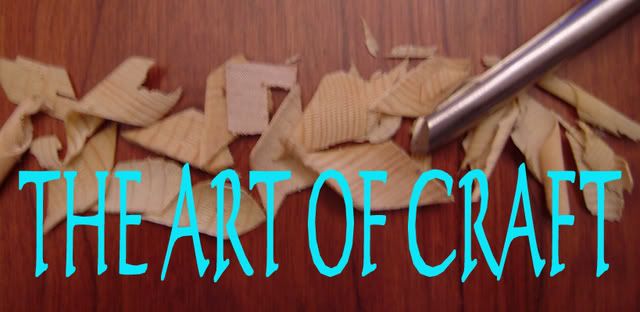In the 1980's shelf rental craft shops were opening all over. It was a popular way to sell crafts as an alternative to craft shows and this was when the Internet was in its infancy and there were no sites like Etsy, etc. There are still shelf rental shops, but many fewer than there once were.
So what is a shelf rental craft shop? This is a store that will rent you space on a shelf - or the entire shelf - or several shelves - in the store to sell your crafts. The store handles all of the business transaction of the sale. Some retail stores set aside a part of their store and rent shelf space to craft artists or there are stores that are completely shelf rental.
Does this work for the craft artist? In our experience, No! We tried a number of shelf rental shops. We made very few sales in most. Only in one shelf rental location did we do well and this was in a large indoor flea market store. I will relate that disaster story later in this article.
The problem with shelf rental is that the shop owner has no advantage as to whether your work is selling or its not. Most shelf rental shops just charge a monthly fee for the shelf space with no commission on top of that. Some do tag on a commission - and actually, though it is more of an expense to the craft artist this is a good thing for the artist. The management (or owner) attitude we encountered at all of the shelf rental shops we were involved in was "if your work does not sell and you leave I can quickly rent your space to someone else". All these shops did was display your work and IF someone found the work and purchased it they would act as the cashier, hold your money, and settle up with you on a schedule. None had salespeople who would work at "selling" the various crafts on the variety of shelves. Now, in the shops that had a commission taken on each sale, the shop had a reason to work at selling what was on the shelves.
To want to try shelf rental you want to only rent at shops that are local to you. A number of shops will seek renters across the country. The problem with this is you must ship your items to that shop - at your expense. If you never walk into the shop, you will never really know if your items actually ever were put onto a shelf. I am not saying that all shelf rental shops are dishonest or unethical - but I have heard of this happening.
When you rent the shelf space, you go to the shop and put your items out on display. You need to check in regularly to see if work has sold and if items need to be replaced. You then come in - at a time arranged with the shop (to not be disruptive to business) and restock your inventory.
The shop is making the sale, collecting the money, and collecting the sales tax. If the shop is giving you the purchase price and the sales tax and you are sending that tax into your State, fine. If the shop is collecting the sales tax and submitting it to the State for the shop - which is what usually happens, you MUST get the shop to completer your state's sales tax resale form, signed with their number to collect state sales tax - just as if you were selling to them for a wholesale sale. The shop should not object to this. It is standard operating procedure for retail stores. If they make a fuss, move on because something is wrong there.
So what happened at that successful shelf rental shop. At the time we were selling baby quilts. We actually were renting a wall that had hooks that would hold bagged baby quilts with room at the side for display of what each looked like. These quilts sold well. They sold so well in fact that the shelf rental owner of this shop inside the indoor flea market decided that his wife could make these quilts too and he would then get all of the income from this hot selling item. He told us to leave. We were told that we took up too much space. I offered to pay him more for the space and he said no. About a month later we were walking through the flea market and and there on the same wall were a "variation" of our quilts, not quite as well made. Such is the problem with shelf rental.
Should you absolutely not do shelf rental to sell your work? Not necessarily. Visit the shop a few times to check it out before even talking to the manager/owner. When you are ready, don't agree to any long term commitments. Rent one month to see what happens. Make sure your work is on the shelf and stop by unexpectedly to see what is happening in the store. See what happens. If you make sales well above the amount of rent you are paying, then rent another month and go along from there. Remember, this rent is an expense that you need to cover in the prices of your items. If you don't you might as well be just giving your work away.













